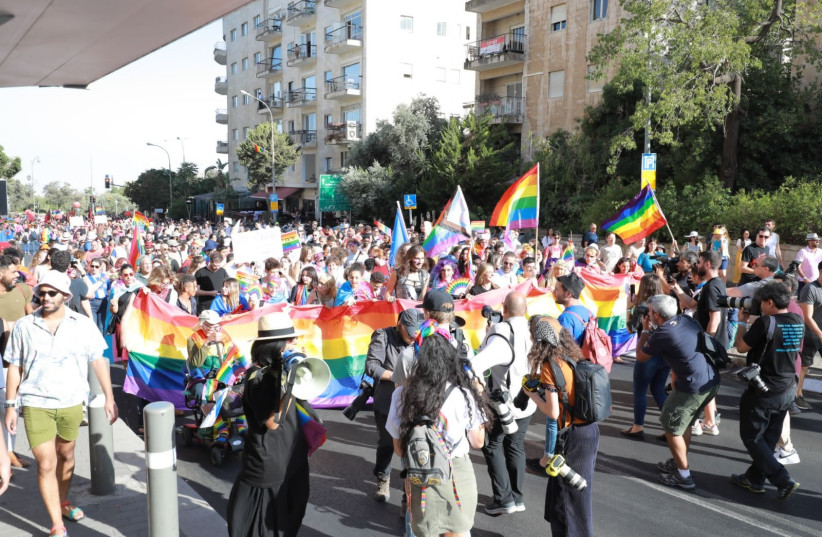Tolerance for the other is not a particular Israeli attribute, though many people in the population are live and let live individuals. But probably just as many are prejudiced against the other for political, religious and ethnic reasons – not to mention sexual orientation.
For all that, there has been what President Isaac Herzog terms “a revolutionary change” in the attitude of Israeli society towards members of the LGBTQ+ community.
Herzog voiced this opinion on Tuesday on receiving the annual Pride Index which measures municipal attitudes towards and services for members of the gay community.
This year, a record number of municipalities – 52 in all – have made acceptance of the other, including gays, a priority in the quest for city harmony.
Preparation of the Pride Index entailed 30 questions in five categories. The question at the top of the list was whether the municipality was prepared to accept same-sex couples and to register them as such.

Psychological services
Another important question was in the realm of social and psychological services.
Many gay people find it difficult to come out of the closet, and when they do, some are in need of therapy, especially if hassled because of their sexual orientation.
It is essential in such cases, for municipalities to have adequately trained social workers and psychologists on hand.
On receiving the index, Herzog commented that societal changes take time, but that he was pleased to see that Israeli society has become much more tolerant and accepting than in bygone years.
He congratulated the organization on its impressive accomplishments as individuals and as a community but cautioned “we all still have a long way to go in order to rid ourselves of prejudice and bias.”
Herzog stressed the importance of getting to the root of the problem, which is a hurtful attitude and to begin advancing a dialogue on rights that will enable full coexistence.
Ran Shalhavi, the CEO of the LGBTQ Association said that members of the gay community can be found all over the country and in all social and demographic circles, including political ones.
"We all still have a long way to go in order to rid ourselves of prejudice and bias."
President Isaac Herzog
The community will continue to fight for its rights to live in safety and equality, both of which are still uncertain in many areas.
He pledged that the community would never bow to the will of the extremists and would continue to shine the torch of tolerance.
